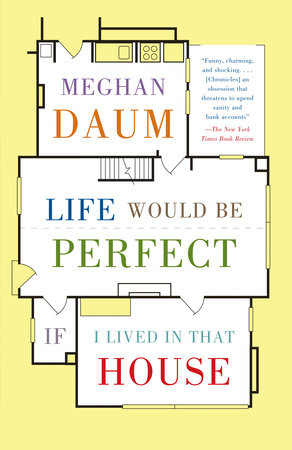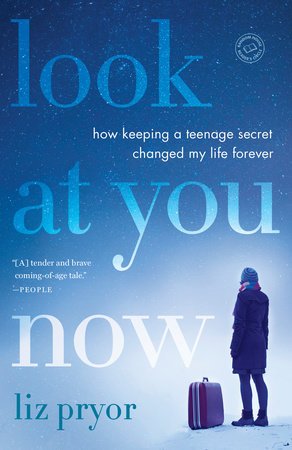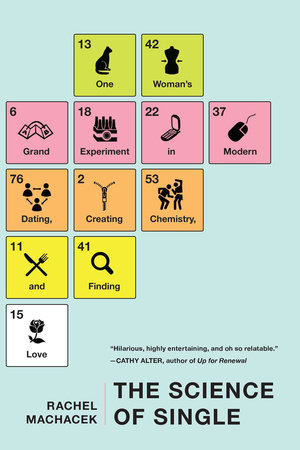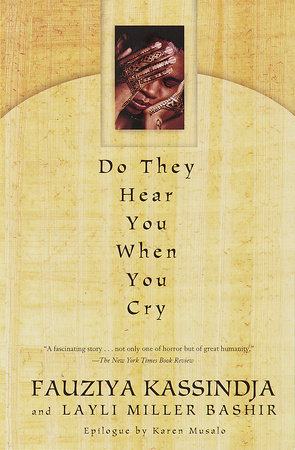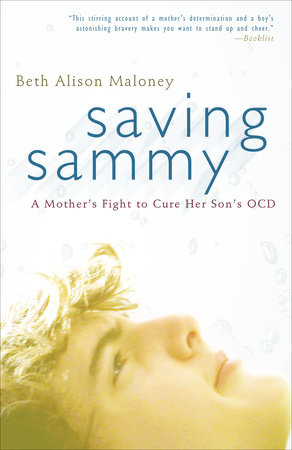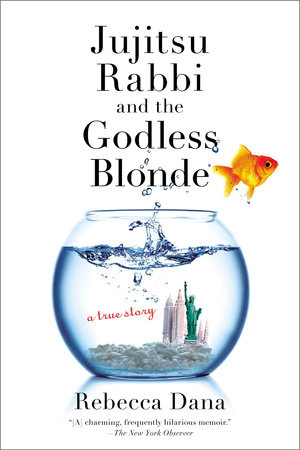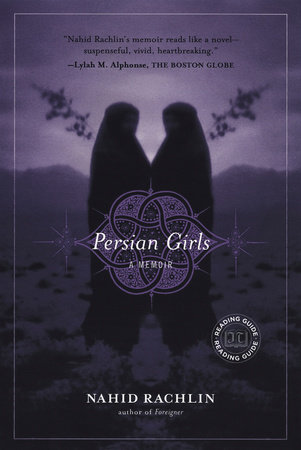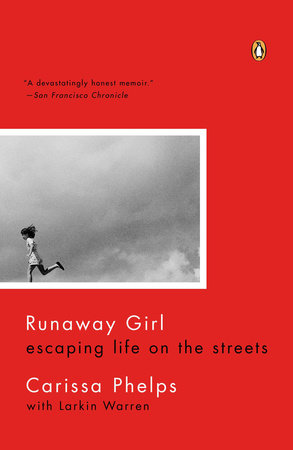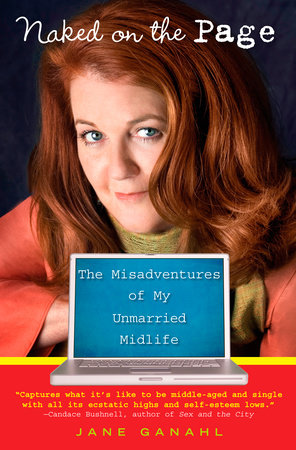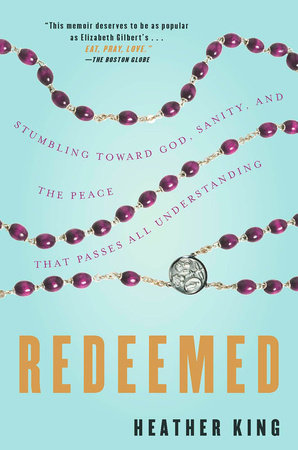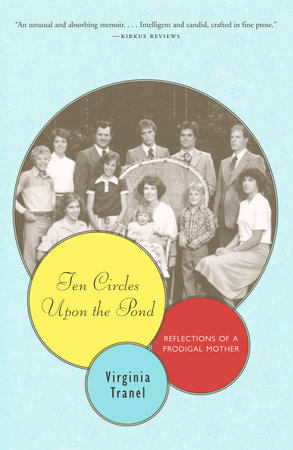Q: In LIFE WOULD BE PERFECT IF I LIVED IN THAT HOUSE, you detail your lifelong obsession with real estate and your quest for a place to call home. What does “home” mean to you? How has that meaning evolved over the years?
A: Asking what “home” means is like asking what “love” means. And, as I say in the book I have a pet peeve about people referring to houses as homes, especially if they’re talking in terms of real estate or about properties as physical, purchasable entities. “I just bought a new home,” someone will say. Really? What does that mean? You bought a feeling, a mélange of smells, a history? No, you bought a house! In my mind, you buy a house but you make a home.
So I guess for me the best way to talk about “home” is to talk about the elements of your surroundings that you make—your friends, your choices, your plans, and, yes, decisions about cities and neighborhoods and floors and furniture and window treatments. In terms of how this has evolved for me over the years, I think it correlated pretty closely with my sense of myself as an adult versus a non-adult. Like most children (most lucky children anyway) my earliest definition of home was, of course, the place where my parents were and my room was and where I ate dinner most nights. Later, when I left for college, I entered a pretty aimless period where I was obsessed with “having my own place” but wasn’t quite at a stage where that could happen in any kind of authentic way (a fancy way of saying I moved dorm rooms constantly and eventually rigged things up so I was basically living in New York City and going to college (in upstate New York) at the same time; I thought I was super cool and artsy and “having it all.” In fact, I was a bit of a caricature of the brooding co-ed with bohemian ambitions and suburban roots, plus I was squandering my education, but that’s another matter. In my 20s, I genuinely did live full-time in New York City, where, like many people, I soaked up the various ecstasies and discontents of the place so fully that it almost becomes part of your blood type. In my 30s, I’m embarrassed to say, I was extremely attached to certain pieces of antique furniture that I dragged from place to place and to certain interior decorating concepts that I tried to implement wherever I went. But I did live in some fantastic, beautiful places in my 30s. I lived on the Nebraska prairie and in the Santa Monica Mountains. I lived near the beach, near the Hollywood sign, and near a truck stop. And several beaux-arts lamps came with me every step of the way—not to mention my 85-pound sheepdog.
Over a six-month period from late last year to early this year, I got married, lost my mother, turned 40, and decided to sell the house I bought (to great personal fanfare) six years ago. As a result I’m thinking a lot about ways to redefine “home.” I’d like to reach a point where “home” will simply be the place that my husband and I (and the dog, of course) happen to be at any given time. I’d like to become evolved enough where the thought of living without hardwood floors doesn’t make me want to jump out of my skin. But that might represent an unattainable level of enlightenment.
Q: In your book you say, “I wanted to live on another block, in another part of town, in New York, in Paris, on the moon.” Why the constant desire to move around?
A: The open houses my parents took me to as a child probably were a factor. We didn’t do sports or play games or relax much on weekends, but my mother was always up for open houses and, moreover, the idea of moving to a new house. I definitely inherited my restlessness from her. I’ve also found that moving functions as something of a stimulant for me. During the process of moving out of an old place and getting settled in a new place I find I become more energetic, more excited about my surroundings and more motivated about my life trajectory. And being in a new place just naturally makes you more observant. It’s like I can feel a set of antennas rising from my skull as I pull into a new town or neighborhood. And that’s a rush; I can’t deny it.
This book is dedicated to my mother, who died shortly after I finished it and who is without a doubt the biggest influence in my life in terms of houses. We weren’t exactly close in a conventional motherdaughter way, but we had a very deep bond when it came to our love of real estate. The first chapter, which talks about the houses of my early life, is very much about the way she channeled so much of her creativity and ambitions and even frustrations through the houses we lived in. She had a remarkable ability to create a beautiful interior world on little or no money (this is something I aspire to but haven’t yet mastered.) When my mother finally emancipated herself from a particularly unworkable set of family dynamics (which is a fancy way of saying “when she left my father”) she did so not by divorcing him or cutting off much contact but by simply renting her own house. And then there was a house after that and a house after that and a Manhattan apartment after that. And they were all pretty magnificent.
Q: After several years in New York, you moved to Lincoln, Nebraska. What attracted you to such a different place? How much of a factor was the high price of real estate in New York in your decision to relocate?
A: The reason I give most often for moving to Nebraska is, yes, the less expensive cost of living (it’s the most easily explained.) I rented a large apartment with beautiful woodwork in Lincoln for about a sixth of what it would have cost me in Manhattan. I was in a lot of debt from student loans and various other things, so I framed my decision around my financial picture. But that belied a deeper, less tangible and infinitely more pressing reason that I went to Nebraska, which is that I felt an almost chemical urge to radically change my surroundings. As enamored as I’d been in my teens and 20s of New York City, I always nursed a constant, low-grade crush on the idea of rural life and, specifically, the aesthetics of the prairie. Some of that, I’ll admit, came from having watched the Little House on the Prairie series on television and reading the books as a kid. I was consumed with the idea of homesteading, so much so that I made my mother sew me a sunbonnet so I could run around like Laura Ingalls. She also put an extra box spring under my bed and leaned a step ladder against it so I could climb up to it as though it were Laura and her sister’s loft bed. Even as I grew older and outgrew Laura Ingalls I remained enthralled with the aura surrounding the high plains. I loved—and still love—the starkness of that geography, the huge sky, the scarcity of the trees, the drama of the weather. But because it’s easier to tell yourself and others that you’re uprooting your life and moving to the central plains in order to save money rather than to watch a hail storm through the window of a rattling farmhouse, I basically went with that story. Not that the money part isn’t true; I desperately needed to get out of debt. But there are ways to do that that don’t involve hailstorms, so clearly something else was at work.
Q: When you eventually moved to LA, you had a hard time letting go of life in Nebraska, and nearly bought a farmhouse there as a vacation home. Why do you think you had such a hard time leaving Lincoln for good? Does the allure of a farmhouse still call to you?
A: The farmhouse definitely still calls to me! When I moved to L.A. I missed Nebraska terribly, not just for the obvious reason of missing the friends I’d made there but also for (again this is intangible and a bit tricky to explain) the entire mood of the place. I could describe that mood as “laid back” but that doesn’t quite get to it. It’s more like I detected in Nebraska a sort of peaceful coexistence with reality. That sounds kind of sophomoric and pretentious, I know, but I guess what I’m saying is that I noticed a greater acceptance there of the messiness and absurdity of life. That acceptance can be difficult to find in places where the financial stakes are higher and people tend to be harder driving in the conventional sense and more invested in achieving some notion of perfection. As a former New Yorker, that kind of mentality was, alas, quite a novelty to me. And after soaking it up for nearly four years I landed in a canyon north of Los Angeles surrounded by a lot of wealthy people who wore their “laid backness” like designer jeans while they were in fact so anxious that their pets were on Xanax (true.) So in the midst of that I found myself craving that stark geography again. And every time I go back to Nebraska, which is at least once a year, I feel just so exhilarated when that plane touches down.
Q: Your current home in Los Angeles is also the first home you’ve actually purchased. What prompted you to buy it? At times you questioned your decision to do so – now, six years later, do you have any lingering doubts?
A: What prompted me to buy the house was some kind of inexplicable chemical urge. I realize that’s the second time I’ve said “chemical urge” in these answers but, here again, I don’t quite know how else to explain it. Definitely I was caught up in the frenzy of the real estate bubble. At that time—2004—everyone was talking about mortgages and interest rates and adjustable rate loans and termite inspections and anything at all related to housing. But I think what was also going on with me was that, for whatever reason, my sense of who I was had become almost pathologically tied to where I was. In other words, I felt like if I didn’t own property I didn’t own myself. If I didn’t have a mortgage I might as well not exist. I was also—thanks partly to my itinerancy and partly to my own personality, which can be rather solitary—in a state of fairly significant aloneness. I was not dating and didn’t really want to, at least not until I had a house of my own. I also thought owning a house would literally make me more attractive. This is weird, not to mention pretty counterintuitive (as one man told me, “girls who rent are so much less threatening”) but that’s the logic I was operating under at the time. On some level I wanted to be threatening. I wanted my house as a shield.
As for lingering doubts, now that I’m getting ready to sell my house I can’t believe some of the stuff I apparently didn’t care about when I was in escrow to buy it. We’re talking broken beams in the foundation, plumbing that, as I’ve joked (though sadly I don’t think it’s a joke) dates back to the Coolidge administration, kitchen cabinets that were so shoddy they literally collapsed when we pulled the countertops off. But we’re also talking a purchase year of 2004, when people were paying a million dollars for glorified tool sheds, so I try not to be too hard on myself. That said, if you’re the person who winds up buying my house and you’re somehow reading this: I’ve fixed these problems. All of them!
Q: After taking the big real-estate plunge, you met, dated, and eventually married your now husband. Do you think there’s any sort of karmic connection between the two?
A: I’d like to say yes but I’d probably be lying. I was in that house for two years before I met or even really tried to meet someone (because in my mind it wasn’t enough to own a house; it had to be totally fixed up.) And I wasn’t even finished when I met my now-husband, since I made him shop for antique kitchen drawer pulls on our first date. I think it was mostly luck—and the fact that he called me for a second date even after I dragged him to an architectural salvage yard.
Q: What have been some of your favorite repairs/renovations at your current home?
A: I painted the living room mint green and the bedroom bright blue. Then after a few months I painted the living room terracotta and the bedroom mint green. I got really inspired by a backdrop in a clothing catalog (Soft Surroundings, which makes flowy, oversized things in Asian prints for women of a certain age) and hired a guy to make my kitchen cabinets look like weathered barn wood. All of these things have been undone and made generic and normal now that I’m getting ready to sell the house, so I’m not sure I’d call these renovations “favorites.” It’s more that they stick in my mind because of how fundamentally ridiculous and money wasting they were (though they looked nice for a time.)
I guess my most “transcendent” renovation was the one in which I stayed up all night scraping linoleum tile off the bathroom floor with a butter knife. One of the many drawbacks the house had when I bought was ugly blue tile in the bathroom. And one night I spotted, as if glimpsing a tiny ray of light penetrating a dark room, a fragment of the original porcelain hexagonal tile from when the house was built in 1928. This was thrilling beyond description. Porcelain hexagonal tile, you see, has been a running theme in my life. They’re what, in some ways, separated a desirable Manhattan apartment from a less desirable one. They’re what, even when broken or chipped or downright crumbling, always signified the kind of house or apartment I wanted to be living in—a place with history and integrity, a place that felt solid and real and a little dingy rather than flimsy and pre-fab and totally clean. So that night I started scraping off the linoleum and the next thing I knew it was 3:00 in the morning and my hands were bleeding and my I was covered with tile glue and I had a whole new bathroom floor. That’s to say I’d unearthed the old floor. And if I may be hyperbolic (because when it comes to porcelain hexagonal tile the only thing I can be is hyperbolic) discovering this floor was like discovering my house’s very soul. Perhaps that was the moment when my house became my home.
Q: From A (Architectural Digest) to Z (Zillow.com) there’s a ton of fodder out there for those with an addiction to what you term “house porn.” What are some of your favorite television shows, magazines, websites, and stores that scratch your itch? Any secret sources you want to share with the world?
A: Truth is, most of it doesn’t excite me that much. I feel like most of the television shows seem to be concerned with how to do unimaginative renovations in a cheap way. I love interior design, but since I tend to get my ideas from places like the Soft Surroundings catalog and televisions shows that aren’t directly about real estate (the Fisher family’s kitchen on Six Feet Under is still my dream kitchen, even though I think they may not even have had a dishwasher) I tend to me more interested in the buying and selling side of things. The fact that when we talk about buying real estate we’re talking about enormous amounts of money—your life savings or huge loans or both—makes it a subject that is incredibly loaded on so many different levels. When I was shopping for my first house, the numbers were so huge as to feel almost unreal. The result was that I’d sit up at night doing endless calculations (and I’m truly terrible at math; in any other circumstance this would not have been an activity I elected to do on my own) trying to figure out how much house I could afford and how much money I’d need to earn in order to afford a better house and what would happen if I took on more than I could afford. In other words, as interested as I was in finding the perfect light fixture, I was often even more interested in thinking about ways in which I might pay for that light fixture (because, you see, going without it was not on option.)
Personally, I tended to do my calculations in a frantic, 3am, listening to late night call-in shows on the radio kind of way. But I think everyone who’s ever made a major purchase has his own version of this and no matter how cool a customer you try to be you always feel like you’re in over your head. To that end, I do find myself watching “House Hunters”, despite not relating to it much because the buyers are never in a competing bid situation and they never dissolve into screaming, crying fights in the car the way real couples do when they’re house hunting. I look at the Multiple Listing Service online constantly, even when I’m not actively shopping for a house. I read the Curbed blogs, like Curbed L.A. and Curbed New York. I don’t read a lot of the magazines, though Dwell can be interesting and World of Interiors is just gorgeous. However, given my predilections for old, falling-down houses, the concerns of those magazines are often out of my league. Sometimes, just typing something into Google like “how to open a window that’s been painted shut” provides me with hours of invaluable information.
Q: What is it about real estate that draws such a following? Why are so many Americans so obsessed with the size, location, and style of their home? Do you think there’s a deeper meaning to this fixation?
A: The essence of this book is really an examination of the emotions that inform these obsessions. Yes, it’s a book about houses. But it’s also about how we see ourselves in the world vis-à-vis our family, our social class, our aspirations, and our fears. The way I’ve always thought of it, a house is ultimate metaphor. It’s more than just shelter for ourselves and for our loved ones, more than just “the biggest purchase you’ll ever make.” It’s like a really expensive, high-maintenance, inanimate version of ourselves. It’s a repository for every piece of baggage we’ve ever carried. Our homes protect us from the outside world, show our off taste, and accommodate our stuff. Perhaps above all, they prove to ourselves and to the world that we’ve truly moved out of our childhood bedrooms. You don’t have to be a real estate junkie, I think, to feel this way.
Q: You’ve lived in Austin, TX, New Jersey, New York City, Lincoln, NE, and are now based in Los Angeles. Where do you feel most at home? Do you have aspirations of life in another city (or town)?
A: I’m not sure I could tell you where I feel most at home. Part of the reason I wrote this book was because I wanted to explore the concept of home and think about why my identity (and, indeed, many people’s identities) has long been so tied up in where I live, and the vagaries of what it looks and feels like—the colors of the walls, the contours of the woodwork, whether the kitchen and bathroom is old or new and whether the doorknobs stay in place or come off in your hand when your turn them (as has been the case in many places I’ve lived.) I feel relatively at home in Los Angeles, not least of all because I’ve been here for seven years and I’m a columnist at the L.A. Times and I’m active in a certain subset of L.A. life (i.e. the infinitesimally small set comprised of people who write primarily for the page and not the screen and therefore become crippled with envy when they attend parties at the multi-million dollar houses of people who’ve written a couple episodes of “The King of Queens”, but I digress . . .) Like I said, I feel a visceral connection to Nebraska when I am there. As for New York, I spent much of last fall there and I often found myself forgetting entirely that I no longer lived on the upper west side of Manhattan. But New York tends to have that effect on anyone who lived there for any length of time and, moreover, humans are very adaptable creatures so despite how traumatic change can be I think we adjust—which is to say we arrive at some version of “feeling at home”—faster than we often think we will.
Q: At this point, you’re an expert house hunter. If you were to imagine your ideal home, what would it look like?
A: My concept of the ideal house changes on a daily—sometimes hourly—basis. Some days I’ll feel modernist while other days I’m solidly in my pre-war, wood-framed, wraparound front porch, built-in pantry and linen closet mode. Of course I’d also like a farmhouse in Nebraska, an apartment in New York or a villa in Tuscany. So I’m flexible, at least in the macro. In the micro, I can be absurdly inflexible. My aversion to wall-to-wall carpet is well-documented (by me, at least.) I also have beefs with certain kinds of tile and countertops, including granite which, for reasons I cannot fathom, is beloved by realtors and continues to be associated with “fine living” (at least the kind hinted at in magazine ads for Soft Scrub, not to mention property descriptions written by said realtors—“crown molding, granite countertops; hurry won’t last!”) For my part, my dream property would come with a carriage house that could be used as an office and guest quarters. I must admit, just thinking about all those things makes me simultaneously depressed and excited. It’s such a base reaction. I’m depressed because I don’t have this kind of house but also excited at the thought of having it one day. That’s kind of a sad state of affairs, isn’t it?
Maybe what it comes down to is the simple conundrum of wanting the thing that isn’t available. I see my ideal house all the time; it’s just rarely available to me in any way. Again, this is something I inherited from my mother. When I was a kid, there was a particular street whose houses she admired and she wrote letters to the occupants of every house—she literally wrote “Dear Owner”—telling them that if they ever wanted to sell she hoped they’d let her know. It’s such a desperate act in some ways but also such a hopeful one. And maybe lusting after real estate essentially boils down to some kind of intersection between desperation and hope—the feeing of being convinced that your life just can’t go on if don’t find that house but also hopeful that it will happen.
Q: You note that by the time the market was peaking, the only thing anyone in LA could talk about was real estate. How have the massive changes in that market affected cocktail party chatter?
A: It’s definitely opened up the discussion topics. The shift away from full tilt real estate mania means that you’ll hear an occasional conversation about health care, the environment, the public school system, the television show “Mad Men” . . . whatever. But the topic is still palpably there. Not necessarily out of some hangover effect from the housing bubble but because, let’s face it, people have always been obsessed with where they live. The frenzy that we saw a few years ago with low interest rates and inflated property values and hundreds of home and garden shows on cable and anyone with a pulse being able to take a $700,000 mortgage certainly ratcheted things up. But when we talk about “real estate mania”—at least the way I talk about it in the book—we’re talking about a psychology that’s always been around. We’re talking about human nature. I have no doubt that people in ancient Rome or the Middle Ages and or the early native peoples of the Americas were heavily invested in where they lived. There was probably even house envy going on in the Paleolithic era; “life would be perfect if I lived in that cave.”
Q: You’re planning to sell your house and upgrade to a bigger place. How do you think the time you spent reflecting on your passion for real estate and all its attendant details will affect your next purchase?
A: It’s different because I’m conducting the search with another person, so I can’t just walk into a place and say “eew, I hate these tiles and wouldn’t even consider living here even though the rest of the place is great” or “ooh, this is a dilapidated heap with fire damage and mold but it has the original woodwork so let’s make an offer.” I mean, I can say these things (I do on a regular basis) but I’m now accountable to someone who will tell me “you’re impulsive and insane.” I’m accountable to someone who’s is less obsessed with the process than I am.
Ultimately I think there’s a maturing process with all this, which comes with recognizing that “ideal houses,” like ideal romantic partners, don’t actually exist. It’s all too easy to look for houses the way we look for partners. We want them to fill every need, cover every base, bring out our own best qualities and literally erase the bad qualities. We want to feel about a house the way we felt about our first love; that this is the one and only house for us and we couldn’t possibly be happy anywhere else. But as we get older we realize that there are lots of “ones” and, moreover, you can’t have everything so you have to decide what’s most important to you and focus on finding that. There’s a passage in the book where I talk about a dream I had in my 20s in which the “perfect” house was available for a ridiculously low rent. The house was both a craftsman and a Japanese pagoda. It was in the middle of the city but it was in a huge park so it was also effectively in the country. Clearly, it was a manifestation of my unwillingness to compromise or choose, of my desire to live every place at once. So I think when you can get to that place where you say, “this is my house; it’s not everything I might but I’m as happy here as I’d be anywhere” then you’re in a mature relationship. In other words, you’re home.
